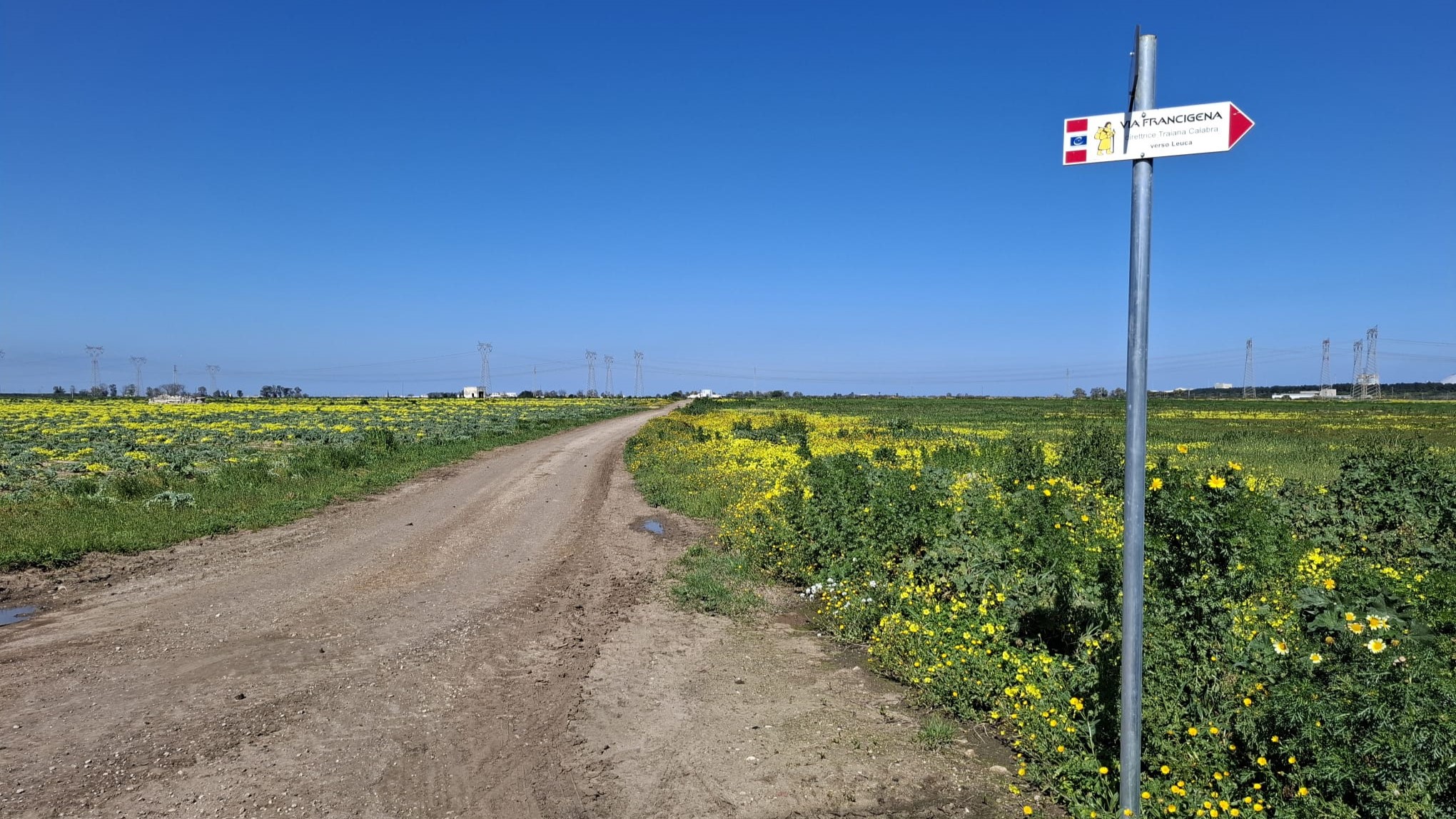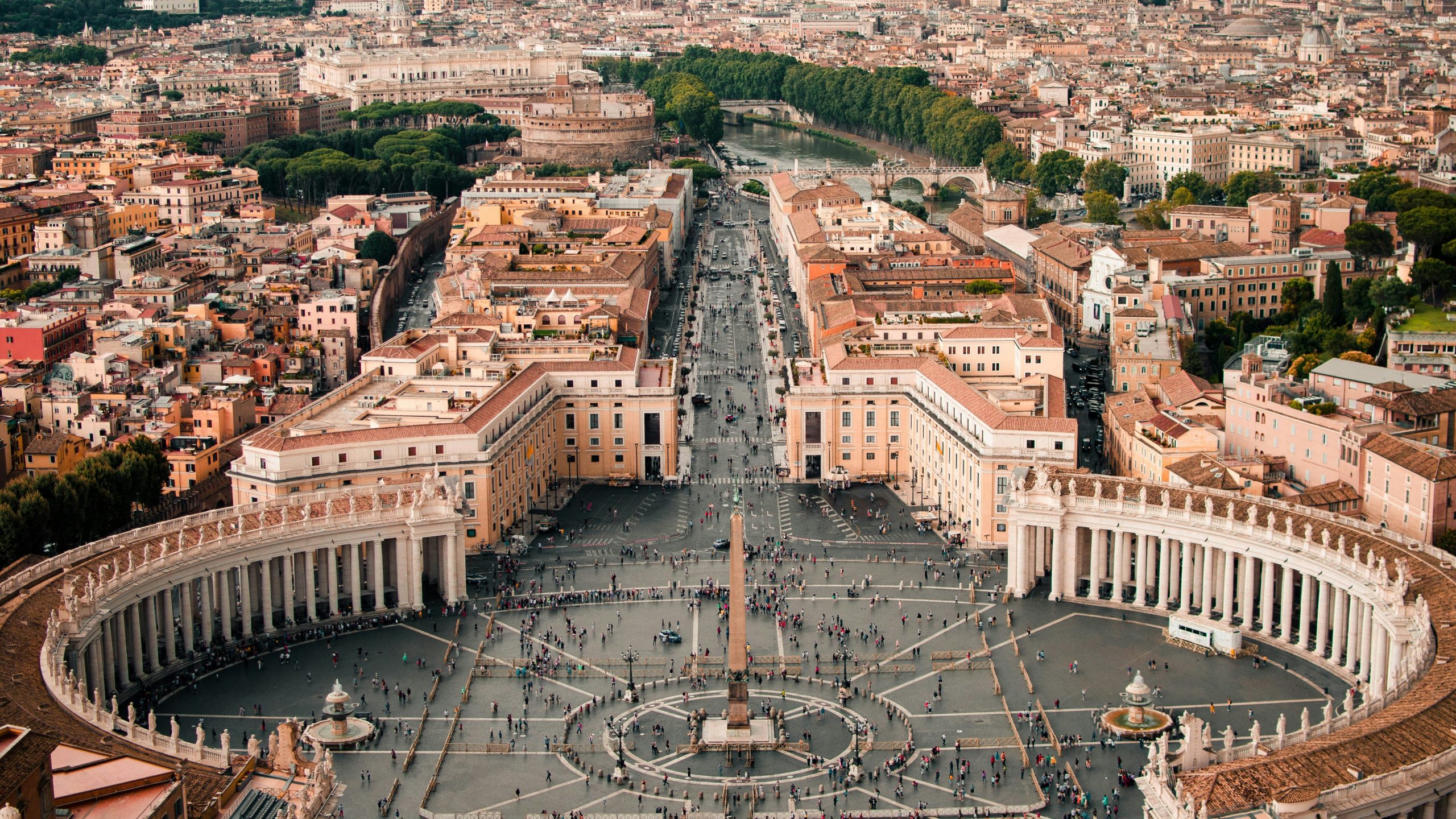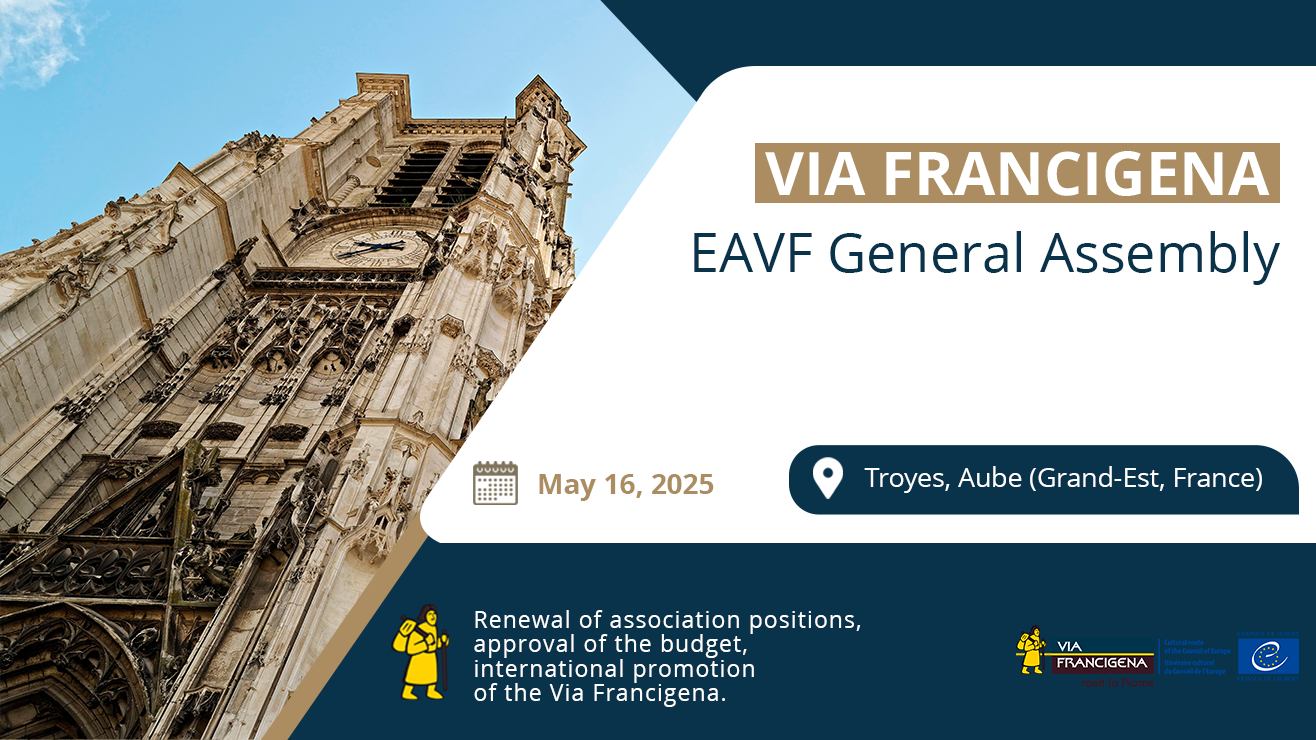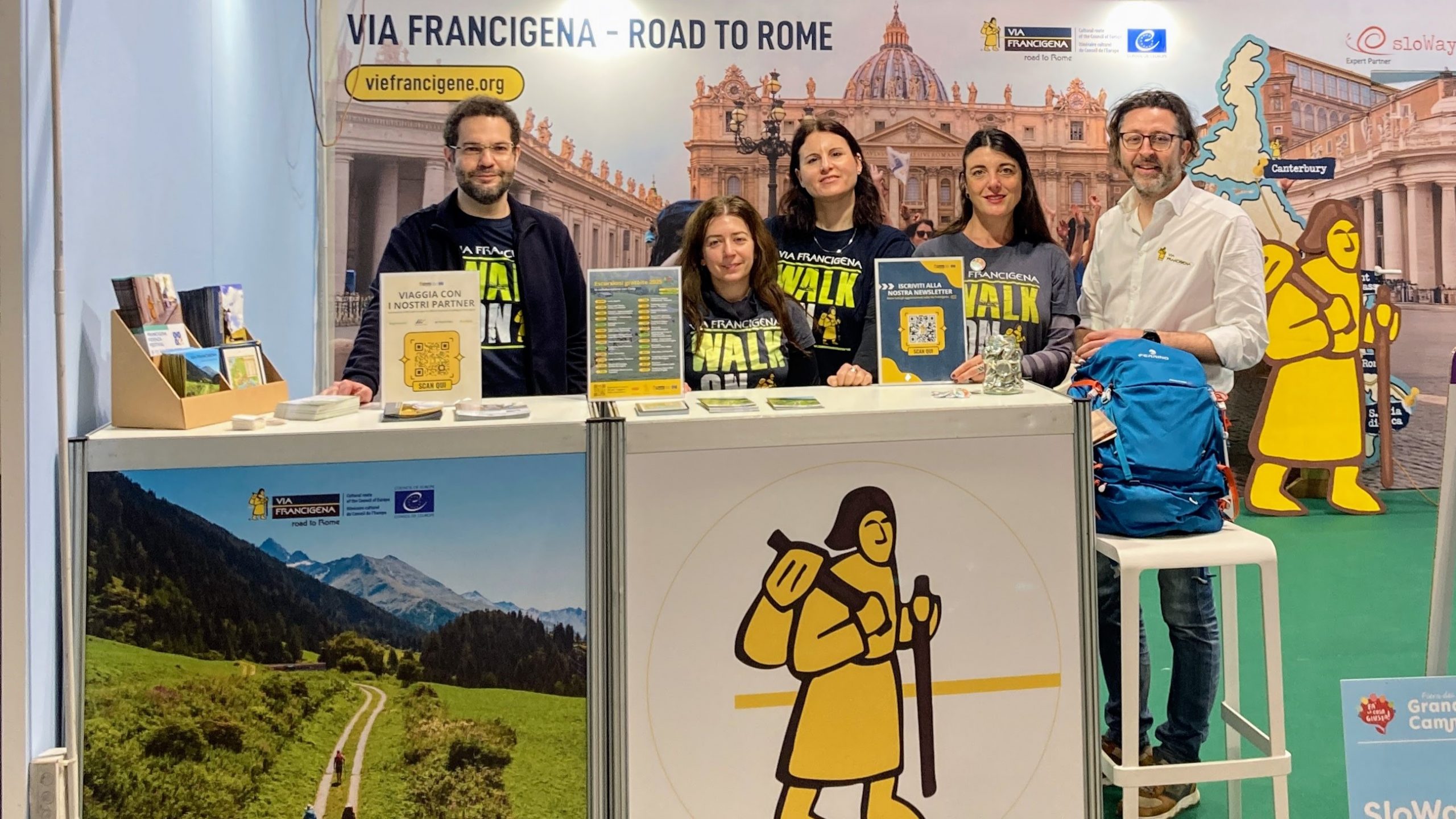On 27 May – 1 June 2019 the European Association of the Via Francigena Ways has conducted a study visit to the Apulia region in the framework of the cooperation project ‘Italy, Greece and Turkey on Foot’.
The study visit brought together participants from Italy, Turkey, Greece and the Netherlands and was a great success.
With an objective of learning Via Francigena best practices of pilgrims’ hospitality and routes development, the attendees explored the Apulia Region and discovered local traditions, customs and cultures.
On the first day having tasted famous local bread of Monte Sant’Angelo, the participants visited the ancient Sanctuary of Saint Michael the Archangel, the UNESCO World Heritage Site as well as were welcomed by local associations and representatives of the municipality.
The following day the group visited San Giovanni Rotondo – a place well-known for its Saint Padre Pio and saw a pilgrim’s hostel developed by the local government in a historic tower. Then the group had a chance to trek through magnificent Gargano National Park.
In the last days of the trip, the visit was focused on coastal towns of Trani, Polignano a Mare and Monopoli and their hospitality facilities, such as an Italian concept of ‘albergo diffuso’ – type of accommodation with rooms and apartments spread over in town with one information/ reception point.
The 7-km hike along the South Via Francigena on the coast was an exciting opportunity to experience the Via in real life.
Last two days were spared for enchanting city of Bari where Basilica San Nicola is erected with its all grandeur. In Bari the group had fruitful meetings with representatives of the Apulia region and the AEVF to learn good practices in terms of network governance, capacity building and promotion.
The study visit was a great opportunity to learn best practices of welcome and hospitality and a real discovery of the region.
We thank the organizers and all stakeholders who contributed to the study visit. The project ‘Italy, Greece and Turkey on Foot’ is financed by the European Union under the ‘Civil Society Dialogue V’ programme and implemented by the Turkish Directorate for EU Affairs under the Ministry of Foreign Affairs.










